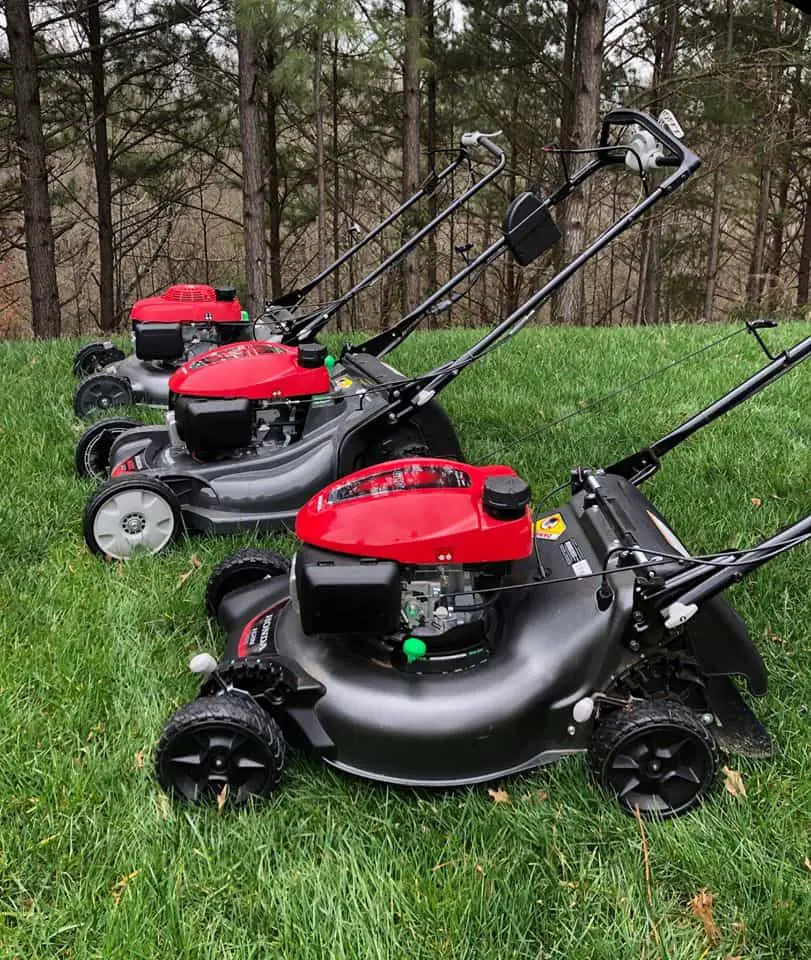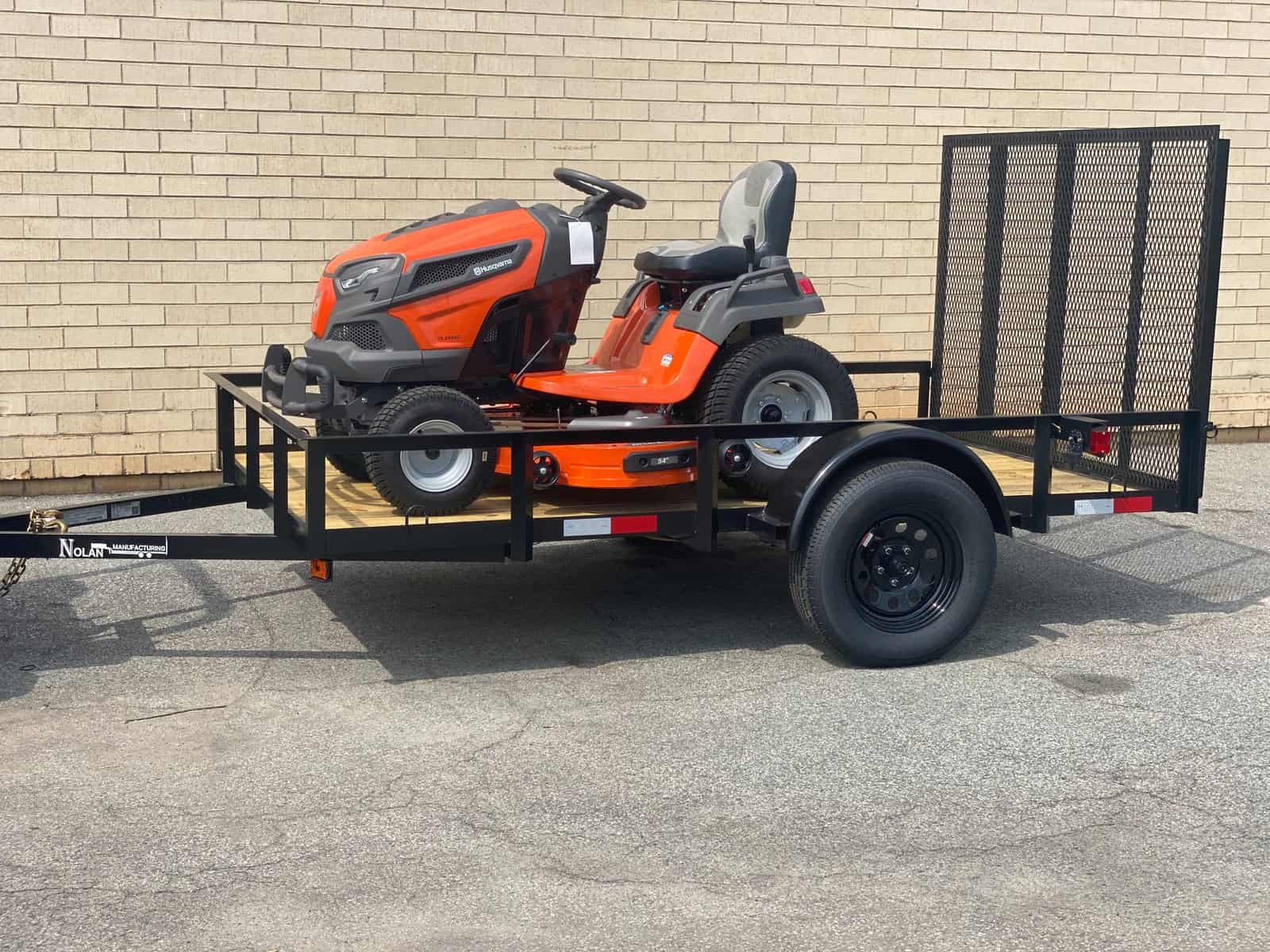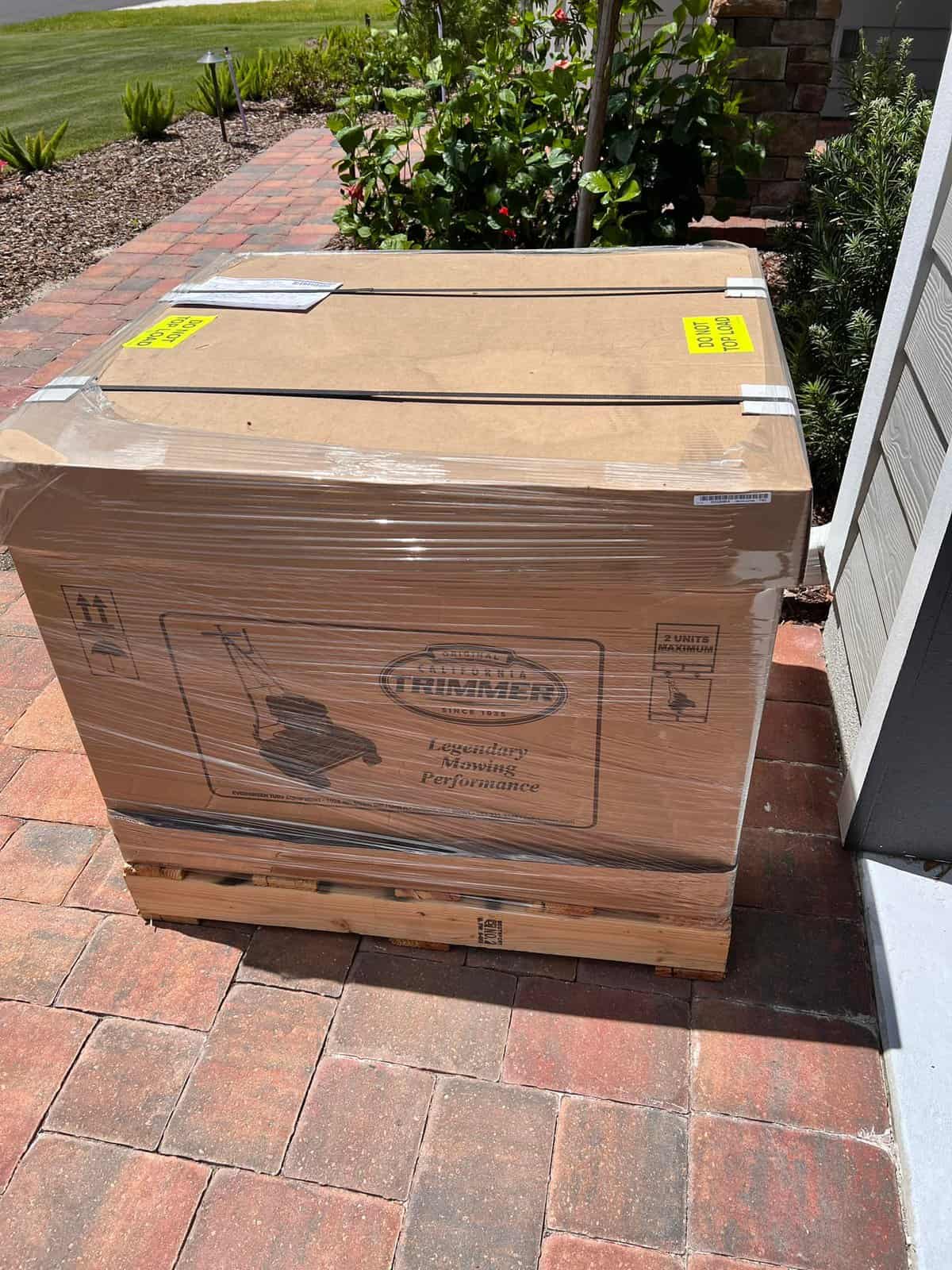Hi there,
A mower is an essential outdoor equipment that makes yard maintenance more straightforward and efficient.
Knowing your lawn mower’s weight can be essential for proper storage and transport. How much does a lawn mower weigh?
This article will discuss the various types and their typical weights to help you make an informed decision. Let’s scroll down!
Contents
How Much Does A Lawn Mower Weigh?
The weight of a lawn mower will vary depending upon the specific type and its features. Here’s a breakdown of the heaviness of different types:
- Electric mowers: 25 – 65 (lbs)
- Push mowers: 30 – 100 (lbs)
- Gas mowers: 80 – 90 (lbs)
- Cordless mowers: 20 – 80 (lbs)
- Riding mowers: 400 – 2000 (lbs)
- Zero-turn mowers: 400 – 2000 (lbs)
Keep reading to get more detail!
Electric Mower
Are electric mowers lighter weight? The answer is yes! They are less heavy than their battery-powered or gasoline counterparts.
These machines lack moving parts and fuel tanks, making them lighter than other types. Typically, these devices weigh between 25 and 65 lbs. The poundage depends on some factors, including
- The dimension of the cutting deck,
- The power of the motor
- The type of materials used to make the machine’s body
Corded electric mowers are generally lighter than cordless ones since they have no battery.

Push Mower
How much does a push mower weigh? It is relatively lightweight, with a weight of 30 – 100 lbs. The heaviness of specific models depends on the engine type, the added features, and the materials.
How big is a standard push mower? The size of the cutting deck is among the most crucial factors when determining the machine’s dimensions.
The cutting deck is part of the mower that houses the cutting blade, and it’s responsible for determining how wide of a swath the device can cut with each pass.
Generally, most standard push mowers have cutting decks ranging from 18 to 22 inches. However, some models have smaller or larger cutting decks, so you must check the specifications of any machine you’re considering.
Gas Mower
Gas mowers are heavier than electric mowers. They usually weigh between 80 and 90 lbs. The heaviness of the gas mower depends on the cutting deck’s size, the engine’s power, and the materials used to make the machine’s body.
Self-propelled gas mowers are heavier than push ones since they have additional components like a transmission and a drive system.

Cordless Mower
Cordless mowers weigh between 20 to 80 lbs. It depends on the cutting deck’s size, the motor’s power, and the type of battery used.
Lithium-ion batteries are lighter than lead-acid ones. Also, they are the most common type used in these machines.
Riding Mower
Riding mowers are indeed heavier than their push counterparts. This difference in weight stems from their intended use on more extensive lawns.
Riding mowers are typically used on lawns that span an acre or more, while push models are ideal for smaller yards.
The average heaviness of this mower type is between 400 and 900 lbs. However, some models can weigh up to 2000 lbs.
This extra weight is often due to additional features that heavy-duty riding mowers may have, such as larger fuel tanks, more powerful engines, and broader cutting decks.
Despite their weight, riding mower models are more effective than push ones, as they can cover more ground in less time.

Zero Turn Mower
Zero-turn mower models are an excellent choice for commercial use, with a high weight capacity allowing them to handle even the most demanding jobs.
With an average heaviness of around 400 – 2000 lbs, these machines can withstand the rigors of daily use.
Some models can also weigh up to 2500 lbs, making them even more powerful and capable of tackling the most challenging tasks.
Why Is The Weight Of A Mower Important?
You must consider a mower’s weight before purchasing one. While it may seem like a minor detail, the heaviness can significantly impact the machine’s performance and usability.
Here are the reasons why this machine’s weight is essential and how it affects how you use and maintain your device.
Transporting The Machine
A heavy mower is a challenge if you need to move your machine from one location to another, whether across your yard or to a different property.
A lighter device will be easier to lift and carry, reducing the risk of injury or strain. Additionally, if you need to load your machine onto a trailer or truck, a lighter-weight machine will be more straightforward to maneuver and will put less stress on your vehicle’s suspension.
Storing The Machine
Another consideration when it comes to the heaviness of a mower is storage.
If you have limited space in your garage or shed, a heavy machine will be more challenging to move around and store.
A lighter device will be easier to pull or push into position, and you can store it in a more compact space.
It is crucial if you have other equipment or tools that need storing alongside your machine.
Stability & Manoeuvrability
A heavier mower may be more stable and less likely to tip over. However, turning and maneuvering around obstacles can also be more difficult.
A lighter device may be easier to handle and turn but less stable and more prone to tipping. Ultimately, the ideal weight of this device will depend on your needs and the terrain you will move on.

Wrapping Up
Choosing the right mower for your lawn care needs requires considering various factors, one of which is weight. It varies depending upon the specific type, the engine size, and the materials.
Knowing your device’s weight can help make the selection process easier and ensure that you choose the best one for your lawn care needs.


